
Château Princé
Sustainability
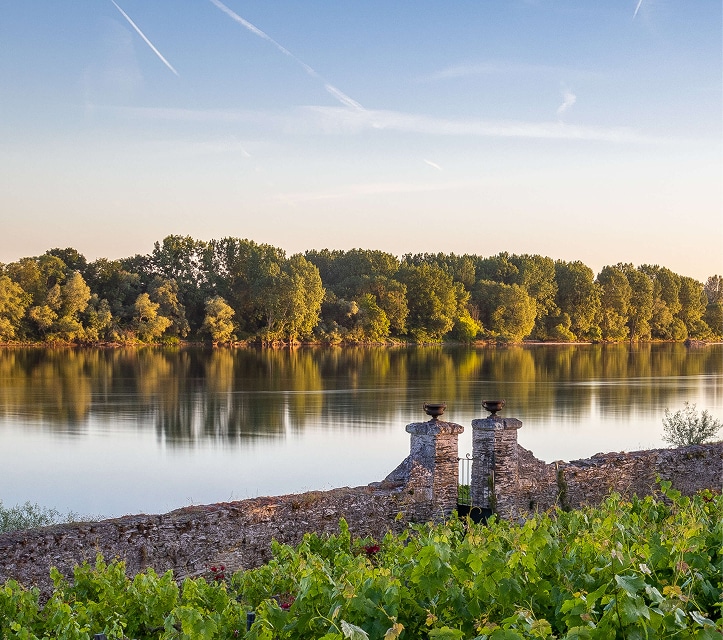
Social responsibility and sustainability
are at the heart of our approach!
At Château Princé, we believe that good wine is created with respect for nature, people and future generations.
Located in the heart of the Aubance valley, we make it a point of protecting this magnificent and unique environment while adopting responsible practices at every stage of our business. Biodiversity and the preservation of natural resources are at the heart of our concerns.
With this in mind, we have planted almost 400 metres of hedgerows around our vineyards and laid out an orchard with a wide variety of fruit trees, creating areas that contribute to the preservation of the ecosystem.
Our vines are cultivated using integrated viticulture methods that respect the soil, flora and fauna, in harmony with the cycle of the seasons.
 Certified
Certified
biodynamic agriculture
The grapes grown in the Château Princé vineyard are certified biodynamic.
Biodynamic agriculture is based on the fundamentals of organic farming, enriched by specific practices. It is distinguished by actions that strengthen the link between the soil, the plant and its environment. It’s an ethical and holistic approach that aims to strike a balance between nature, mankind and respect for natural cycles.
“Biodynamic viticulture is head in the clouds and feet firmly on the ground”
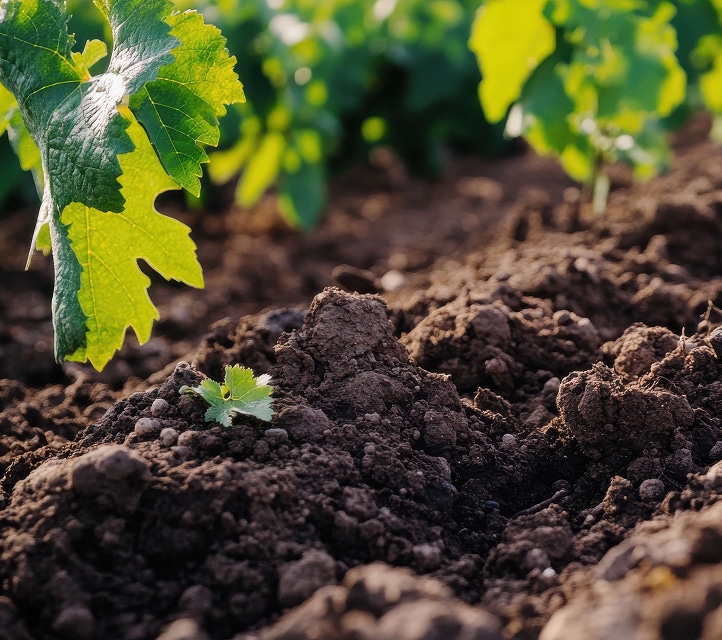
The Main principles of biodynamic agriculture
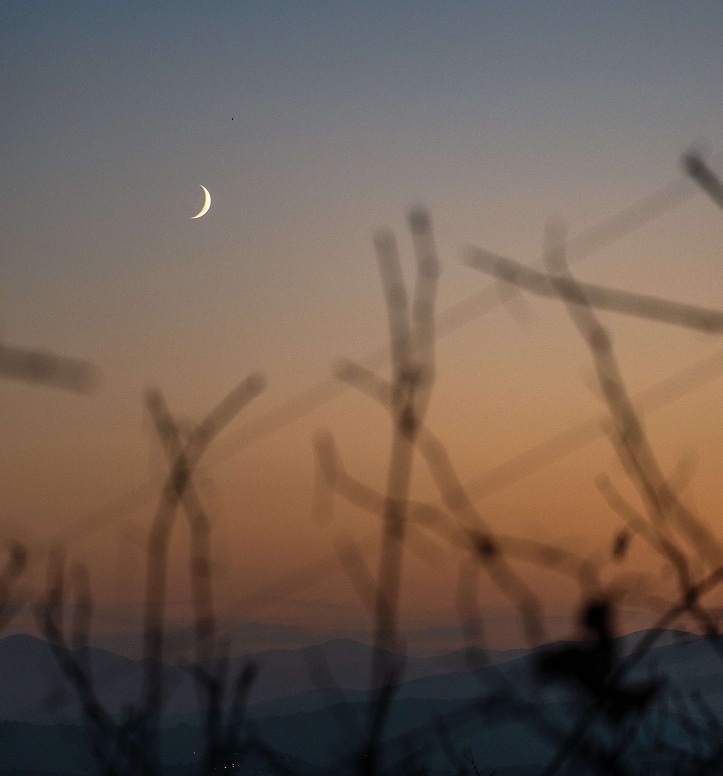
Synchronisation with
the lunar calendar
Throughout the year, the winegrower and his team adapt their work to the rhythm of the moon.
An ascending moon encourages the growth and ripening of the vines (sowing, harvesting, leaf thinning, grafting, etc.), while a descending moon stimulates root development and soil regeneration (planting, pruning, ploughing, etc.).
In addition, each intervention on the vine or wine is optimised according to the days (fruit, leaf, flower or root) defined by the lunar cycle.
- Flower days: optimal for planting and caring for flowering plants and herbs.
- Fruit days: best for sowing, planting, debudding, pruning and harvesting fruit-bearing plants.
- Leaf days: ideal for activities that benefit the plant itself (leaf thinning, wood pulling).
- Root days: suitable for working the soil (ploughing, etc.).
- Nodes (points where the orbits of the moon and earth cross): unfavourable to working in the vineyard and tasting the wines.
The lunar calendar also influences the characteristics of the wine. Wines will reveal more floral aromas when tasted on flower days, while leaf days bring out tannic and bitter notes.
The use of
natural preparations
In biodynamic agriculture, the preparations are based on minerals or organic matter.
- 500P, also known as brown gold, is one of the practices emblematic of biodynamic agriculture. It involves burying, during winter, horns filled with cow dung. This preparation stimulates root growth and improves the structure and life of the soil. In spring, once the preparation has been removed, it is mixed with rainwater and applied to the vines to boost their resistance to diseases.
- 501, otherwise known as horn silica, is a complementary preparation made from very finely ground quartz. Unlike 500P, it is used on vine foliage, during the vegetative period. Among other things, it allows the effects of sunlight to be captured more effectively and encourages growth.

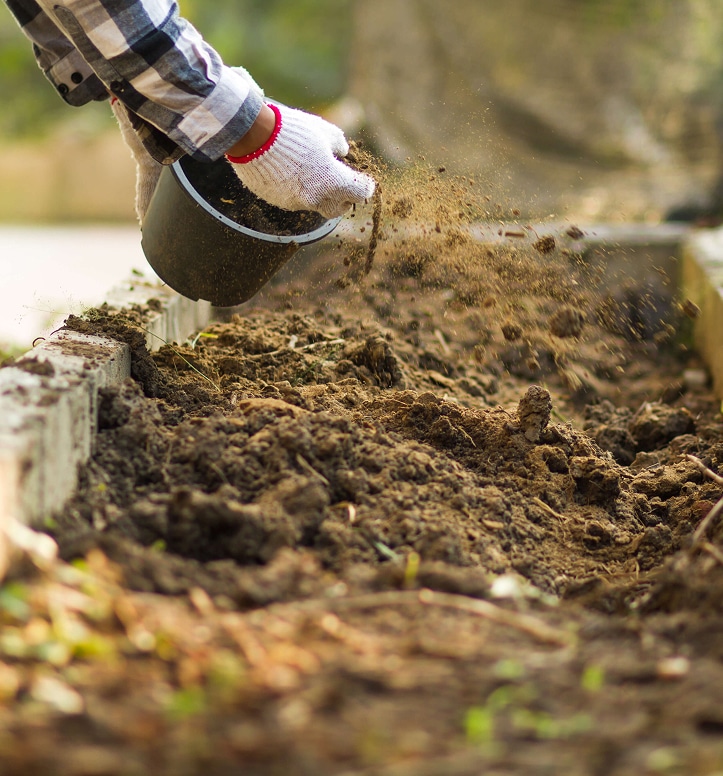
The use
of compost
It plays a central role in preserving the health of the soil and encouraging biodiversity in the vineyard.
At Château Princé, we favour the use of vermicompost. This ecological method is based on the decomposition of manure, mainly from horses and cattle. This decomposition is carried out by specific worms called Eisenia Foetida. Over a period of several months, these worms decompose the manure, enriching the soil with proteins, micro-organisms and other nutrients essential to the vines. We apply a quantity of vermicompost adapted to the plots of vines in production, as well as a specific dosage for the young vines.
This is best done in the fall, to allow the vines to reap the full benefits of the compost before winter sets in. We source our compost from a local supplier renowned for the quality of its production.
Sustainable and innovative
agricultural projects
In order to improve our practices and contribute to the preservation of our environment, a number of concrete measures have been taken:
- The creation of a washing area: this area collects waste water from the cleaning of our agricultural machinery. This water is then treated in accordance with legislation to prevent any environmental pollution.
- Buying a rotary harrow and a seed drill: using a rotary harrow reduces soil compaction. Its rotating shaft breaks up the clods and levels the surface, making it easier to sow plant cover between the rows of vines. These cover crops play a key role in the proper functioning of wine-growing ecosystems. They encourage the nitrogen cycle, which fixes and enriches our soils with nutrients essential for the vines, and they help develop pollination in the spring. In addition, the roots of the plants left on the surface contribute to the structure of the soil, limiting run-off and erosion.
- Acquisition of a mechanical weeding tool (Actisol Hydrolames): this system is an alternative to chemical weeding. It acts from the first millimetres of the soil by cutting the roots and rootlets of weeds, thus preventing their development, while guaranteeing respectful mechanical weeding for the maintenance of the undervine area. Ideally, 2 to 3 passes per year are recommended to limit the spread of weeds, which increase humidity and the likelihood of diseases in the vines.
- Using Cultibio: this tool helps aerate and loosen the soil, preserving the microbial and biological life of our soils, while promoting good water drainage.
These projects have been carried out thanks to a subsidy from the PCAE (Plan de Compétitivité et d’Adaptation des Exploitations agricoles)
The European Union’s European Agricultural Fund for Rural Development (FEADER), and the Pays-de-la-Loire region.
This collaboration with European and regional institutions is a real driving force for the transformation of our farm, and we are convinced that these actions will contribute positively to the preservation of our natural heritage while ensuring a sustainable future for our business.
We would like to thank the European Agricultural Fund for Rural Development and the Pays-de-la-Loire region for their support. We are proud to be able to benefit from this aid and to participate in environmentally-friendly agriculture.
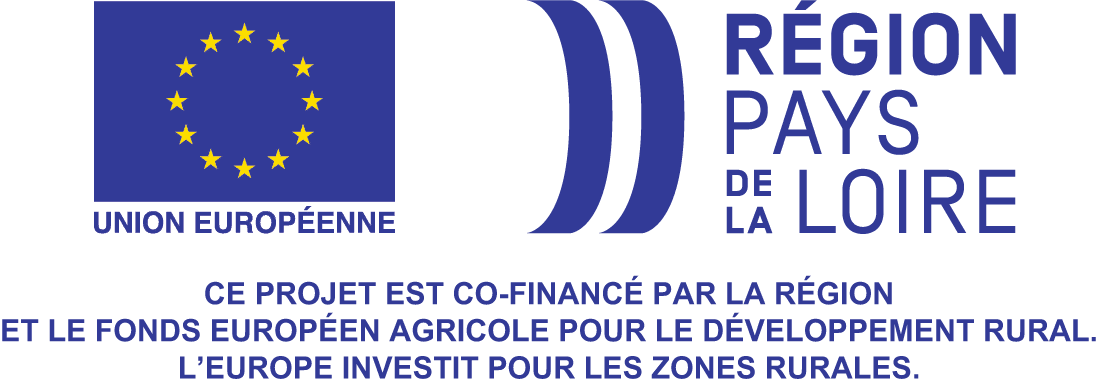
Proximity
and local savoir-faire
We are fully committed to supporting the social and economic players and initiatives in our region.
The wood used to make our barrels comes exclusively from French forests, guaranteeing a local and sustainable origin.
As part of our wine tourism activities, we work with local producers, artisans and partners. Together, we showcase the savoir-faire and dynamism of our region.
Ethics are at the heart of our commitment. We are dedicated to total transparency in our practices, with regard to both our customers and our partners. We are committed to guaranteeing the traceability of our products, so that every bottle of Château Princé embodies respectful, authentic and sustainable work, from vine to table.
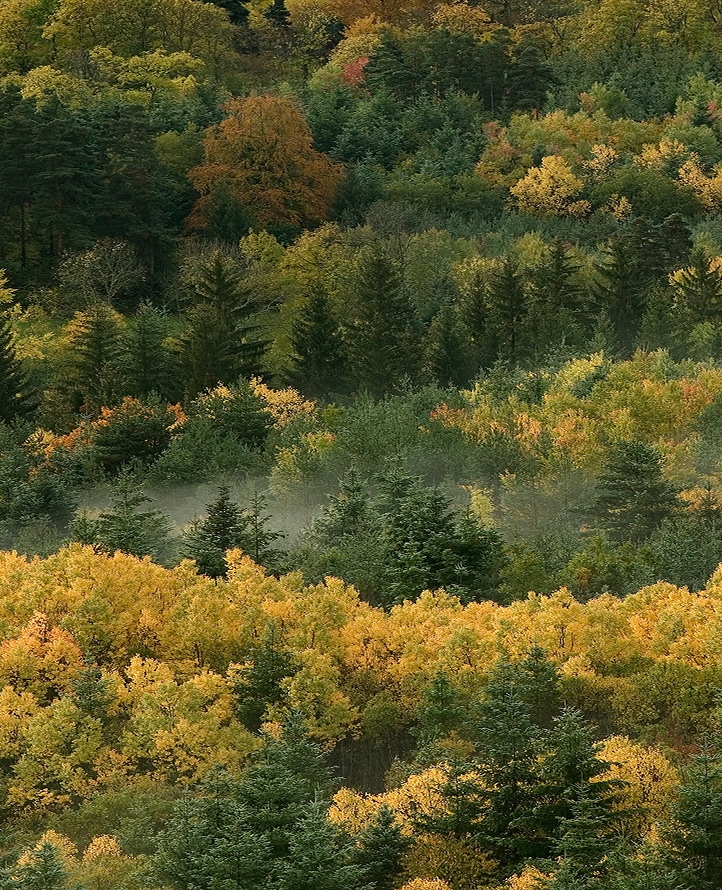
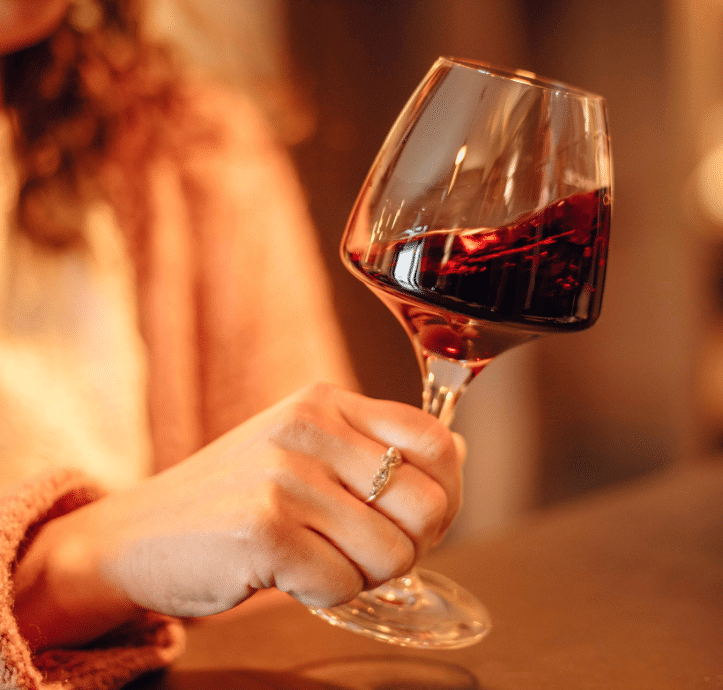
Come and taste
Our wines in the cellar
Château Princé has a tasting room dedicated to discovering our wines. Designed to welcome both amateurs and connoisseurs, our tasting area offers an elegant and welcoming setting, perfect for discovering our vintages. Whether you are a beginner or an avid wine enthusiast, our team is available to guide you through the tasting and help you discover the unique characteristics of our wines, produced from a very special terroir.
April to September: Monday to Saturday, 10am to 7pm
October to March: Monday to Saturday, 10am to 12.30pm and 1.30pm to 6pm